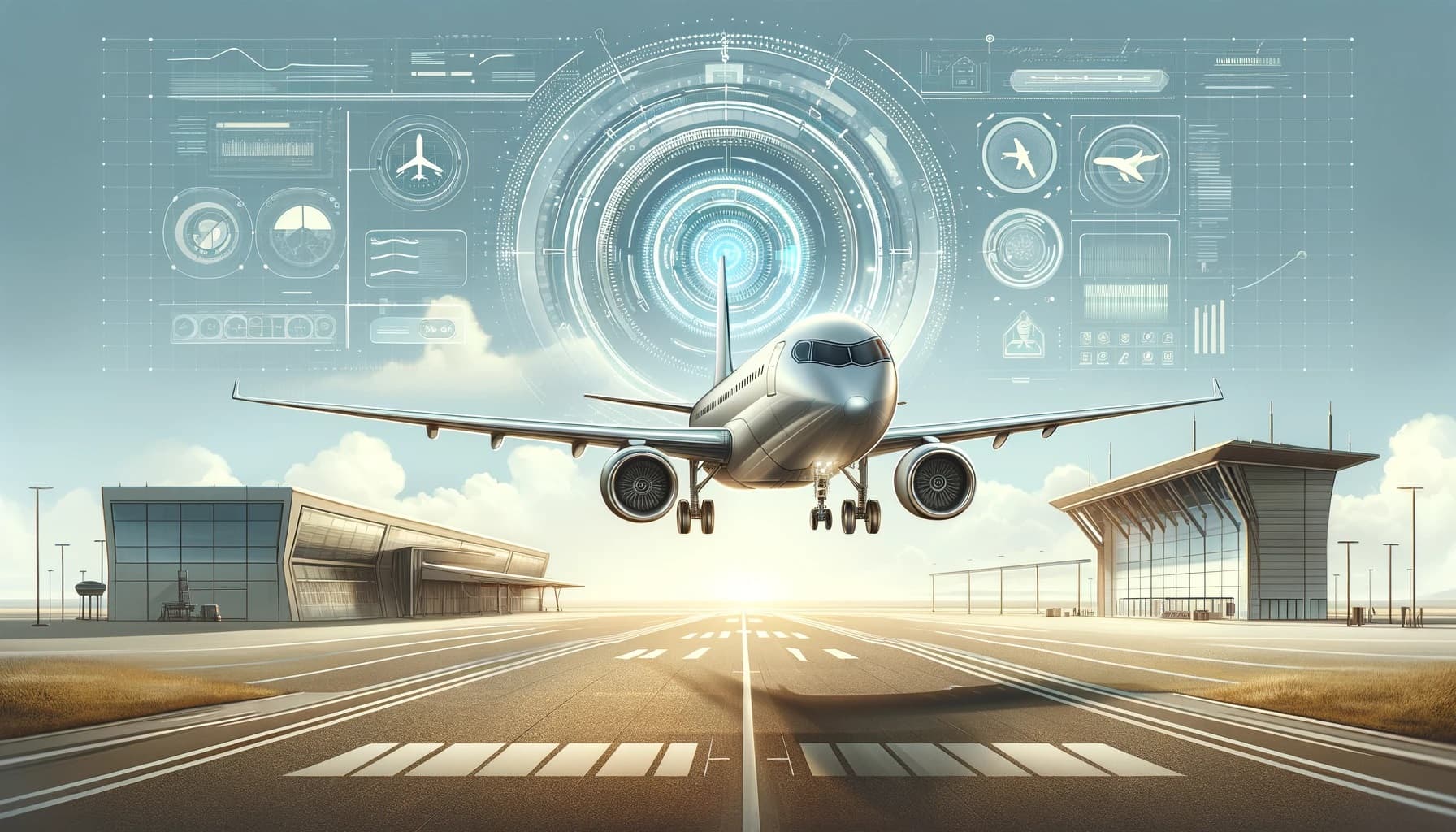The aviation industry has always been at the forefront of technological innovation. From the Wright brothers' first powered flight to the development of supersonic jets, aviation has consistently pushed the boundaries of what is possible. In today's digital age, aviation technology is evolving at an unprecedented pace, bringing about groundbreaking changes in how we fly, manage airports, and ensure safety. As an aviation enthusiast or professional, staying informed about these advancements is crucial. In this blog post, we will explore the future of aviation technology, discussing the latest trends and innovations that are shaping the industry. Whether you're considering enrolling in aviation courses or are already part of the aviation community, understanding these developments is essential.
Aviation Technology Trends and Innovations
- Electric and Hybrid Aircraft:
The aviation industry is actively exploring electric and hybrid propulsion systems. Electric aircraft offer the potential for reduced emissions and noise pollution. Companies like Airbus and Boeing are investing in electric aircraft prototypes, making them a promising area of development. - Urban Air Mobility (UAM):
UAM is a concept that envisions air travel within urban areas using electric vertical takeoff and landing (eVTOL) aircraft. These small, electric-powered vehicles could revolutionize urban transportation by providing fast, efficient, and environmentally friendly options for short-distance travel. - Supersonic Travel:
The return of supersonic travel is on the horizon, with companies like Boom Supersonic and Aerion Corporation working on supersonic passenger aircraft. These aircraft promise to cut travel times significantly, making long-haul journeys much faster. - Autonomous Aircraft:
The aviation industry is researching autonomous flight technology. While fully autonomous passenger flights are still in the future, autonomous systems could enhance safety and efficiency by assisting pilots and controlling drones and cargo aircraft. - Advanced Materials:
The development of lightweight, strong, and sustainable materials is a key trend in aviation technology. These materials can reduce fuel consumption, extend aircraft lifespans, and improve overall efficiency. - Digital Twins:
Digital twins are virtual replicas of physical aircraft, airports, or systems. They allow for real-time monitoring, simulation, and predictive maintenance, increasing safety and reducing downtime. - Sustainable Aviation Fuel (SAF):
Sustainable aviation fuels are gaining prominence as the industry seeks to reduce its environmental footprint. SAFs are produced from renewable sources and have the potential to significantly lower aviation's carbon emissions. - Blockchain for Aviation Security:
Blockchain technology is being explored for aviation security, particularly for improving the traceability and security of aircraft parts and maintenance records. - Enhanced Connectivity:
The aviation industry is focusing on improving in-flight connectivity, allowing passengers to stay connected during flights. High-speed internet, video streaming, and real-time data transmission are becoming standard features. - Artificial Intelligence (AI) and Machine Learning:
AI and machine learning are being used for predictive maintenance, route optimization, and passenger experience improvements. These technologies can enhance safety and efficiency throughout the aviation ecosystem.
Impact on Aviation Training and Education
The rapid advancements in aviation technology have significant implications for aviation training and education. Here's how these trends affect aspiring aviation professionals:
- Updated Curriculum:
Aviation courses and training programs need to incorporate the latest technology trends to prepare students for the changing industry landscape. Topics such as electric aviation, autonomous systems, and digital twins may become integral parts of aviation education. - Hands-on Training:
As technology becomes more prominent, hands-on training with advanced equipment and systems will be essential for students to gain practical experience and build confidence in using new technologies. - Safety Protocols:
With the introduction of autonomous aircraft and advanced materials, safety protocols and procedures will need to adapt to ensure that students are well-prepared to handle these technologies safely. - Industry Collaboration:
Aviation institutes may collaborate more closely with aviation technology companies and research institutions to stay updated with the latest developments and offer cutting-edge training programs. - Specialized Courses:
As new technology trends emerge, aviation institutes may introduce specialized courses or certifications focused on specific areas of aviation technology. - Adaptive Learning:
Adaptive learning platforms that use AI and machine learning can tailor educational content to individual students, ensuring that they receive the most relevant training for their career goals.
Aviation Technology and Youth Programs
For young aviation enthusiasts, youth programs that introduce them to aviation technology are invaluable. These programs can inspire the next generation of aviation professionals. Aviation programs for youth near you may include:
- Aviation Camps:
These immersive camps offer hands-on experiences with aircraft, flight simulators, and aviation technology, sparking young minds' interest in aviation. - STEM Initiatives:
Science, technology, engineering, and mathematics (STEM) programs focused on aviation technology can provide youth with a strong foundation in the skills needed for a career in aviation. - Flight Training Scholarships:
Scholarships for flight training can help aspiring young pilots gain their private pilot's licenses and begin their aviation journeys. - Mentorship Programs:
Mentorship programs connect youth with experienced aviation professionals who can guide and inspire them as they explore aviation technology.
Finding the Right Aviation Institute Near You
If you're eager to explore aviation technology trends and innovations, the first step is to find the right aviation institute near you. Whether you're looking for an airline institute, airline school, or aviation institute, consider the following steps:
- Research: Begin by researching aviation institutes in your area. Look for institutes that offer the courses or programs that align with your career goals and interests.
- Accreditation: Ensure that the institute is accredited and recognized by aviation authorities, which guarantees the quality and relevance of the education you'll receive.
- Curriculum: Review the curriculum to see if it includes the latest aviation technology trends and innovations. Inquire about any specialized courses related to the areas of technology that interest you.
- Facilities: Visit the institute if possible or explore their website to learn about their training facilities and equipment. State-of-the-art facilities can enhance your learning experience.
- Industry Connections: Find out if the institute has strong connections with aviation technology companies or research institutions. These connections can provide valuable opportunities for internships and networking.
- Student Feedback: Seek feedback from current or former students to gain insights into their experiences at the institute and the quality of education provided.
The future of aviation technology is exciting and full of opportunities for those who are passionate about the industry. Whether you're interested in electric aircraft, autonomous systems, or sustainable aviation fuels, staying informed and pursuing relevant education and training is key to thriving in the evolving aviation landscape. If you're ready to embark on your journey into aviation technology, explore the aviation programs and institutes available near you, and prepare to be part of the exciting future of aviation.






